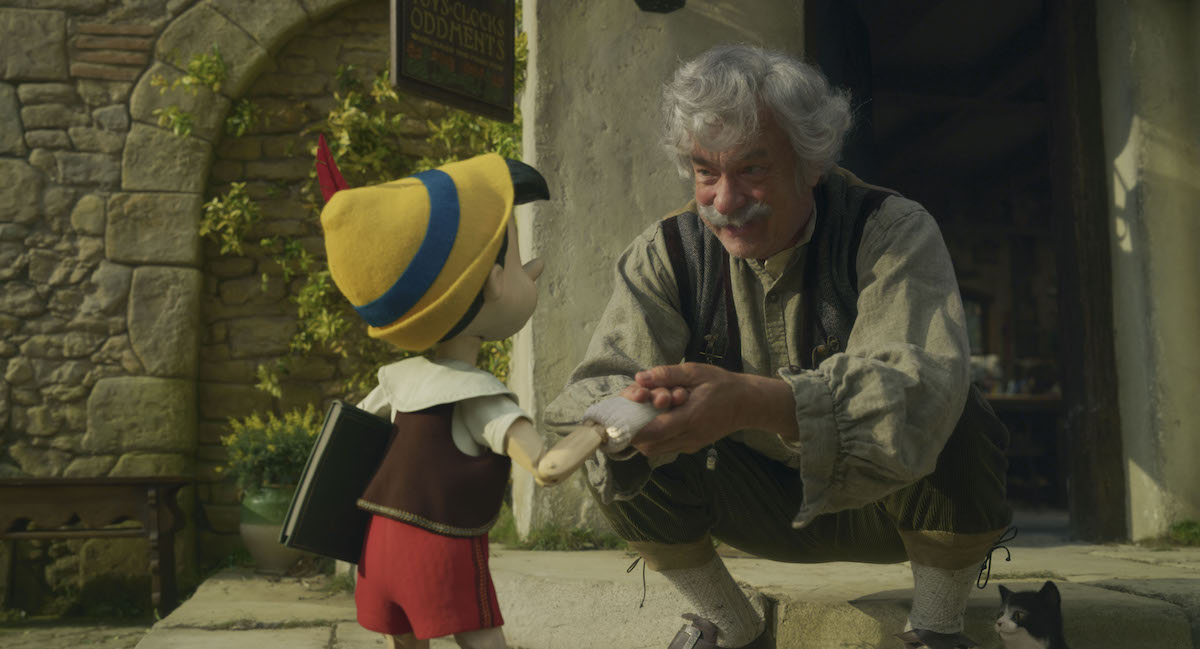American parents used to trust Disney to charm their kids with beautiful fairy tales. Most such tales were European in origin, but Disney Americanized them, made them more democratic, less bloody minded, and ultimately hopeful. It started with animations, then added amusement parks, then any number of other things that made American technical ingenuity and prosperity gentle and pleasant, until it became the most important educator of the imagination of children in the entire media industry.
Nowadays, Disney is reeducating American children to believe in a woke agenda most Americans don’t share, wouldn’t vote for, but might somehow be tricked into financing when their attention is diverted. It seems to have traded delightful surprises for involvement in political scandals, as in Florida, or media scandals over every aspect of casting and plot. Indeed, it courts scandal as a marketing strategy, dividing Americans rather than uniting them, and using its reputation to make it seem as though the very people who gave Disney their vaunted reputation are immoral. What happened?
There are many aspects to this very important story, and some thoughtful conservative should take the time to elucidate them. All I can do today is point out the educational aspect of this change—What is the role of the imagination in education?—by comparing Disney’s Pinocchio (1940) with the new Disney+ movie directed by Robert Zemeckis, starring none other than America’s last lovable actor, Tom Hanks.
Pinocchio is a story about how children learn to become moral. The puppet is a metaphor not only for helplessness but also for the way children are made to do what they do by their parents—it points to our imitative nature, and much of the comedy depends on the awkwardness of the children, who are self-important without being self-aware in their imitation, and the foibles, to say no more, of the adults, who recognize their faults magnified in the small versions of themselves they have made, the focus of their love and life. The puppeteer Geppetto’s wish upon a star, to have a real boy, is every parent’s wish that their child turn out right.
Walt Disney’s contribution to Carlo Collodi’s original story, Jiminy Cricket, is a metaphor for conscience. Jiminy defines it by an old and trusty adage: “The still, small voice that people won’t listen to. That’s just the problem with the world today!” It’s not hard to know what’s right and wrong in many cases, indeed, but it’s hard to do it, it comes at a cost, and without certainty of reward. That problem of character, rather than of knowledge, might not be solvable. After all, our admiration of good character depends to some extent on our knowledge of its rarity!
But in this moment when Jiminy introduces himself to Pinocchio, he gets so carried away with confidence in the power of morality that he leaves character behind, taking it for granted. Instead, he insists on the intellectual part of morality and quickly gets himself in trouble: “The world is full of temptations. They’re the wrong things that seem right at the time. But even though the right things may seem wrong sometimes, sometimes the wrong things may be right at the wrong time, or vice versa. Understand?” Pinocchio obviously has no idea what he’s hearing and no wonder, since the very language suggests that you need the experience of making choices and facing consequences to understand things, to be able to tell which times are meant by “sometimes.”
Morality is forward looking; taking seriously the uncertainty of the future is essential to retaining our humanity. But knowledge is backward looking, after we see the consequences. So the human drama begins anew in this story, and the humor depends on our recognition that, to some extent, we’re in the same trouble as Jiminy and Pinocchio. In their very introduction, their drama is already obvious, and it’s a wonder that they make it through to a reasonably happy end, as Pinocchio proves himself “brave, truthful, and unselfish,” and therefore becomes a real boy. The story lays out three temptations before him, for each of these qualities: the villains Stromboli, a theater impresario, and the Coachman, who indulges boys’ riotous passions, both of whom intend to enslave boys; and Monstro, a whale that swallows up Geppetto.
To compare then with now is to see two different Americas emerge. In 1940, the story insisted that Pinocchio is very easily tempted and not once but twice led into somewhat funny but hideous trouble. In the case of his encounter with Stromboli, he must be saved by the Blue Fairy that animated him in the first place. The boyish weaknesses—prestige and pleasure—are understandable and shared by most adults, and so the movie appeals not merely to the fears of parents but to their underlying reasonableness: Children must be protected from much harm while being educated if they are ever to have a chance to become really human.
All of this is discarded in the new version of the story. Pinocchio is led to the temptation of the theater—celebrity and wealth—not by any weakness in himself but because he is the victim of discrimination. He gets to school as he was told, only to be thrown out by a teacher who tells him he doesn’t belong there, and so chooses the theater as what he hopes will be a road to success. Only then do his corruptors get the better of him, and only by playing on Pinocchio’s desire to please Geppetto.
His second temptation sees him again become a victim, and here it becomes obvious that the revisionist story makes Pinocchio’s innocence into something of a cult that demands fanatical belief. You cannot believe your lying eyes about what might persuade children to misbehave—you must assume that the sainted character has been brutalized by American bullying. Pinocchio is thus led to Pleasure Island by peer pressure—that’s the phrase the story uses, in its typical, tired silliness, wishing to be edifying.
So it’s not any desire for forbidden pleasures in the boy. (By the way, the 1940 story identified those temptations as alcohol and cigars, furthering the thought that boys imitate men; in 2022, these images are themselves forbidden, of course, to be replaced by something as innocuous as root beer.) Nor is the boy tempted by a desire to destroy, which offers relief by unleashing passions that are always under adult supervision, since they cannot be properly educated but through many years of growing up. His innocence requires that we not examine even the motives of the peers who pressure him. Indeed, thinking about the causes of human action is largely absent.
The two stories only begin to converge when Pinocchio has to face the last villain, Monstro, which is not so much Walt Disney’s whale as something out of Lovecraft. The convergence depends on the boy becoming the protagonist, cleverly saving his father, Geppetto, who has been swallowed, Jonah-like. Pinocchio finally acts bravely, but even here the new version makes him into something of a superhero and his father powerless, presumably to fit the contemporary ideology. Seeing this similarity between the two films, however, I began to wonder whether there was not a weakness in Walt Disney’s story to begin with, lending it to this strange hijacking that eliminates the need for a conscience and places children’s problems entirely outside themselves. Maybe a taste for easy victories.
As for lessons learned, Pinocchio in 2022 does not turn into the boy that Geppetto had wished for, as in 1940. He remains a puppet, no doubt as a sign of his authenticity and acceptance for himself as is. That suggests an underlying truth—children brought up with such beliefs can never really grow up. The Christian is guided by his conscience in the uncertainty of events; the virtues that make up good character are our way of acting in the world rather than existing as mere victims of circumstance. These things are, of course, tied up with the soul, which is why they are nowadays despised by popular and prestigious entertainments. With them, so is our humanity.

